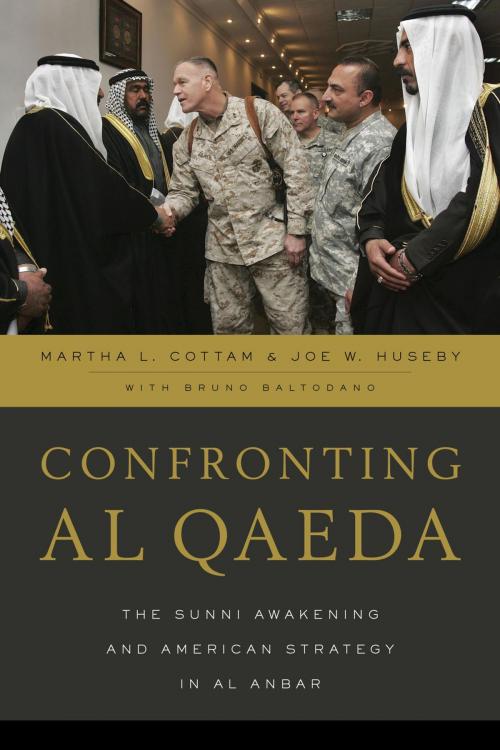Confronting al Qaeda
The Sunni Awakening and American Strategy in al Anbar
Nonfiction, Social & Cultural Studies, Political Science, International, International Security| Author: | Martha L. Cottam, Joe W. Huseby | ISBN: | 9781442264861 |
| Publisher: | Rowman & Littlefield Publishers | Publication: | March 22, 2016 |
| Imprint: | Rowman & Littlefield Publishers | Language: | English |
| Author: | Martha L. Cottam, Joe W. Huseby |
| ISBN: | 9781442264861 |
| Publisher: | Rowman & Littlefield Publishers |
| Publication: | March 22, 2016 |
| Imprint: | Rowman & Littlefield Publishers |
| Language: | English |
Based on in-depth interviews with tribal Sheiks involved in the Awakening and their American military counterparts, Confronting al Qaeda is a study of decision-making processes and the political psychology of the Sunni Awakening in al Anbar. It traces the change in American military strategy that made the Awakening collaboration between the Sunni tribes and the U.S. forces possible. It explains how the evolution of the tribal leaders’ perspective and of the American military strategy led to defeat al Qaeda in al Anbar. The process of these changing mutual images is detailed as well as how the cooperation between groups led to further evolution of perceptions. Political and military realities urgently forced these perceptual and social identity shifts initially, but the process of cooperation and engagement accelerated these shifts through increasingly mutually beneficial cooperation and interaction during the battle with al Qaeda in Iraq.
Based on in-depth interviews with tribal Sheiks involved in the Awakening and their American military counterparts, Confronting al Qaeda is a study of decision-making processes and the political psychology of the Sunni Awakening in al Anbar. It traces the change in American military strategy that made the Awakening collaboration between the Sunni tribes and the U.S. forces possible. It explains how the evolution of the tribal leaders’ perspective and of the American military strategy led to defeat al Qaeda in al Anbar. The process of these changing mutual images is detailed as well as how the cooperation between groups led to further evolution of perceptions. Political and military realities urgently forced these perceptual and social identity shifts initially, but the process of cooperation and engagement accelerated these shifts through increasingly mutually beneficial cooperation and interaction during the battle with al Qaeda in Iraq.















